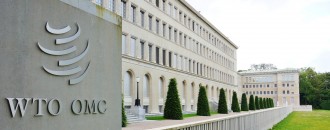
ObamaCare in the process of being revoked, suspension of trade treaties next?
The Dollar Business Bureau
In a move that comes less as a surprise and more as an audacious message sent out by Trump's office on his very first day as POTUS, he signed an executive order to begin the process of revoking ObamaCare, a healthcare initiative looked upon as the legacy of ex-President Barrack Obama.
Titled 'Minimizing the economic burden of the Patient Protection and Affordable Care Act pending repeal', the order seeks to minimize the 'unwarranted economic and regulatory burdens of the act' and create a more open and free healthcare market.
ObamaCare, a federal statute enacted by Barrack Obama in 2010, was enforced to transmogrify the healthcare industry in US. The act set out to expand insurance cover, by subsidising health insurance and making acceptance of all insurance applications mandatory. Low-cost and affordable healthcare was also a salient feature of the act.
Considering how republicans have always gritted their teeth over lavish welfare spending, such a move was long coming. This is the beginning of many reforms to come, which will deregulate and free industries from government intervention in a bid to bolster the declining growth rate of America.
'America first' is going to be the mantra carved in stone for any policy that the Trump administration formulates. This new 'inward focus' and disregard for global institutions, that have kept world order and peace post-World War II, has been openly criticised by many foreign leaders and businessmen alike.
Having turned into an angry nation of workers demanding their share of benefits from globalisation, America is in no mood for compromises and negotiations with the world. Placing emphasis on 'tough and fair' trade agreements, The TRUMP administration has expressed its intent to withdraw from regional treaties like the Trans-Pacific Partnership (TPP) if its intentions are not met. An increased focus on bilateral trade agreements with individual nations can be expected here, which of course, without equivocation, will read 'America first'.
North American Free Trade Agreement (NAFTA), a 23 year old key trilateral trade deal between Canada, USA and Mexico, will be renegotiated to better suit American interests under Trump's stewardship. Making NAFTA the culprit for manufacturing job departures from USA to Mexico, Trump has overlooked its overall benefit to its own exports which would take a hit if both the neighbours decide to retaliate.
Talking about delivering on promises, there cannot be a mightier 'wall' to cut Mexico out than the withdrawal of USA from NAFTA. Although the possibility of a physical wall is far-fetched, metaphorically, it is already under construction. According to 2016 figures, the net trade volume between Mexico and US is about $482.4 billion with US bearing a deficit of approximately $58.7 billion.
Many forecast that a complete withdrawal from the treaty or imposition of high duty on exports from Mexico could backfire for America's automotive industry, which heavily imports components of automobiles from Mexico.
The 'America First Policy', as elucidated on the official website of White House, places uncompromised focus on destroying Islamic terrorist groups like ISIS using extensive international intelligence and military cooperation. Cutting off funding and propaganda channels for the same has been highlighted as the key strategy.
"Our military is depleted, and we're asking our generals and military leaders to worry about global warming," a tongue-in-cheek statement by Trump settles priorities of the new White House policies. A pro-nationalist agenda as expected underscores an increase in defence spending in order to strengthen military, and make American dominance in the matter solid as rock.
In hindsight, USA has always had ulterior motives when meddling in the political or economic affairs of other countries. From controlling the supply of oil in the middle east to protecting its 'superpower' status from the rise of emerging economies, America has never looked beyond its own interests. The question that arises is, can we really blame Trump for being straight-forward and voicing out an integral component of America's foreign policy which it has pursued all along under the pretense of 'welfare' for the world?
The only palpable difference here is the means Trump has proposed. He seems convinced that a complete reversal of the erstwhile democratic administration's policies will work in the favour of US. But will his ideas really serve American interests or create havoc and upheaval? That remains to be seen.






 to success.
to success.